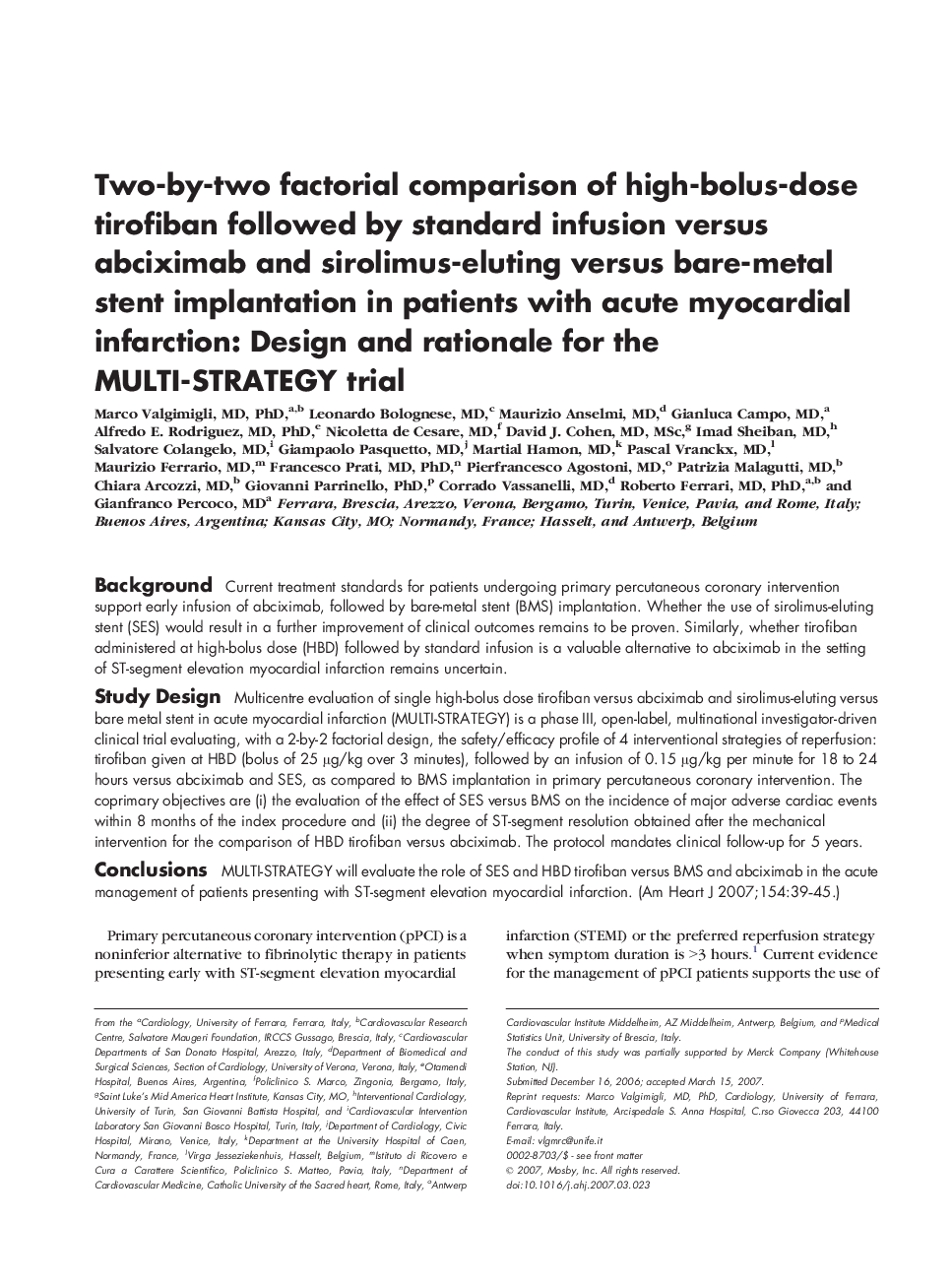| Article ID | Journal | Published Year | Pages | File Type |
|---|---|---|---|---|
| 2849136 | American Heart Journal | 2007 | 7 Pages |
BackgroundCurrent treatment standards for patients undergoing primary percutaneous coronary intervention support early infusion of abciximab, followed by bare-metal stent (BMS) implantation. Whether the use of sirolimus-eluting stent (SES) would result in a further improvement of clinical outcomes remains to be proven. Similarly, whether tirofiban administered at high-bolus dose (HBD) followed by standard infusion is a valuable alternative to abciximab in the setting of ST-segment elevation myocardial infarction remains uncertain.Study DesignMulticentre evaluation of single high-bolus dose tirofiban versus abciximab and sirolimus-eluting versus bare metal stent in acute myocardial infarction (MULTI-STRATEGY) is a phase III, open-label, multinational investigator-driven clinical trial evaluating, with a 2-by-2 factorial design, the safety/efficacy profile of 4 interventional strategies of reperfusion: tirofiban given at HBD (bolus of 25 μg/kg over 3 minutes), followed by an infusion of 0.15 μg/kg per minute for 18 to 24 hours versus abciximab and SES, as compared to BMS implantation in primary percutaneous coronary intervention. The coprimary objectives are (i) the evaluation of the effect of SES versus BMS on the incidence of major adverse cardiac events within 8 months of the index procedure and (ii) the degree of ST-segment resolution obtained after the mechanical intervention for the comparison of HBD tirofiban versus abciximab. The protocol mandates clinical follow-up for 5 years.ConclusionsMULTI-STRATEGY will evaluate the role of SES and HBD tirofiban versus BMS and abciximab in the acute management of patients presenting with ST-segment elevation myocardial infarction.
